Synopsis
Why does the U.S. have an Electoral College? How do congressional investigations work? What does the minority whip actually do? Civics 101 is the podcast refresher course on the basics of how our democracy works.
Episodes
-
Episode 114: The CIA
10/04/2018 Duration: 17minThe Central Intelligence Agency (CIA) is a U.S. foreign intelligence service. It was created in the wake of World War II and Pearl Harbor, at the dawn of the Cold War. But the agency's record and methods are controversial. What is the purpose of the CIA and what is the role of espionage within a democracy? Journalist Tim Weiner joins us to trace the inner workings and history of the CIA. He is the author of Legacy of Ashes: The History of the CIA..
-
Episode 113: The Americans with Disabilities Act
06/04/2018 Duration: 18minOn today's episode: How does the government look out for people who use a wheelchair, are deaf or blind, or have other disabilities? What forms of discrimination do people with disabilities face, and what did it take to get protections passed into law? How well are businesses complying with those protections? We spoke with Lennard Davis, professor of English at the University of Illinois at Chicago and author of Enabling Acts: The Hidden Story of How the Americans with Disabilities Act Gave the Largest US Minority Its Rights.
-
Episode 112: The Eighth Amendment
03/04/2018 Duration: 17minThe Eighth Amendment grants us the right for protection against excessive bail, fines, or cruel and unusual punishment. But how do we define cruel and unusual? And how has that definition changed over the course of history? Is it still "an eye for an eye" out there? Walking us through everything from unreasonable bail to capital punishment is John Bessler, Associate Professor of Law at the University of Baltimore and Visiting Scholar at Minnesota Law School.
-
Special Announcement: Student Contest!
31/03/2018 Duration: 02minInformation at civics101podcast.org/contest, open to all high school students/classes.
-
Episode 111: The Department of Justice
30/03/2018 Duration: 17minThe Justice Department seems to always be in the news - from the White House's public criticism of Attorney General Jeff Sessions, to the President's firing of James Comey - but what's behind the headlines? What exactly does the DOJ do from day-to-day? And what's the agency's relationship between other branches of government? NPR Justice Correspondent Carrie Johnson joins us to help us learn more.
-
Episode 110: The Hatch Act
27/03/2018 Duration: 16minEvery now and again, reports come out that a public official has violated The Hatch Act - a 1939 law that prevents federal employees from engaging in certain types of political activity and speech. Today, we'll find out what exactly is and is not allowed under the Hatch Act; who decides when the line has been crossed; and what the penalties are for violations. Our guest is Liz Hempowicz, Director of Public Policy for the Project On Government Oversight.
-
Episode 109: The Fourth Amendment
23/03/2018 Duration: 19minWhen an ordinary citizen interacts with law enforcement, it can be unnerving to realize the amount of power an officer wields: they've got the guns, the handcuffs, and the authority. But the Fourth Amendment places limits on governmental and police power. What exactly are those limits, and have they changed in the 21st century?Cynthia Lee is a professor at George Washington University Law School and author of Searches and Seizures: The Fourth Amendment.Correction: Cynthia Lee has written one book on the topic of the Fourth Amendment, not several, as stated in the episode's introduction.
-
Episode 108: The FBI
20/03/2018 Duration: 20minThe FBI is our federal law enforcement agency. And, to enforce the law, it plays the role of secret intelligence agency as well. So how does the FBI protect us against domestic threats? And how far has it been willing to go to uphold the law? Journalist and author Tim Weiner joins us to reveal the inner workings of an agency shrouded in secret.
-
Episode 107: Torture
16/03/2018 Duration: 18minOn today's episode: What does the United States do when it captures prisoners of war? What are the Geneva Conventions? How did 9/11 change our commitment to treating prisoners humanely, and what mark has it left on public opinion about torture?
-
Episode 106: Department of State & Department of Defense [Rebroadcast]
13/03/2018 Duration: 16minThey are two of the most powerful positions in a president’s cabinet: the Secretary of State and the Secretary of Defense. One has been around since the American Revolution, the other is relatively new. So what exactly do these two departments and their heads do? And are diplomatic efforts and military strategy natural opposites? In this episode, the history and interaction between two of the most powerful US agencies.This is a rebroadcast of an episode that aired in March, 2017.
-
Episode 105: Democratic Norms
09/03/2018 Duration: 19minOn today's episode: What are the norms of democratic government, and where do they come from? Which norms are essential to U.S. democracy, and how are they changing today? We put these questions to the authors of How Democracies Die, Steven Levitsky and Daniel Ziblatt, and get some concerning answers.
-
IRL2: The Flag and the Pledge
06/03/2018 Duration: 29minToday, our second IRL puts it up the flagpole and sees if anyone salutes it. Hannah goes into the history of the flag and the Pledge of Allegiance and how they've changed since their inception. Then Nick talks about four times behavior towards the flag and the pledge were the subject of Supreme Court decisions.
-
Episode 104: Voting Rights
02/03/2018 Duration: 18minThe Constitution doesn't explicitly guarantee the right to vote, but it's widely considered to be a fundamental way for citizens to participate in American democracy. Who gets to vote and why?Victoria Bassetti is the author of Electoral Dysfunction: A Survival Manual for American Voters. She is also a fellow at the Brennan Center for Justice at NYU.
-
Episode 103: The Fifteenth Amendment
27/02/2018 Duration: 17minAfter the Civil War, Congress passed a bundle of Amendments which came to be known as the Reconstruction Amendments. Their purpose was to address the mass racial inequality that plagued the still forming nation. But did they work? And are they still relevant today? Helping us unpack the last Reconstruction Amendments - the Fifteenth - is Khalilah Brown-Dean, an Associate Professor of Political Science at Quinnipiac University.
-
Episode 102: The Fourteenth Amendment
23/02/2018 Duration: 19minToday, we continue our series on the Reconstruction amendments, the series of Constitutional amendments passed in the aftermath of the Civil War. Congress outlawed slavery with the Thirteenth Amendment, but freed slaves still were not legally citizens, were subject to discriminatory laws, and were not allowed to go to court. The Fourteenth Amendment was intended to change all that, with some of the strongest civil-rights language in the Constitution. If you've heard of due process or equal protection under the law, you've heard of the Fourteenth. We talk to Ted Shaw, professor and director of the Center for Civil Rights at the University of North Carolina School of Law at Chapel Hill, and the former President of the NAACP Legal Defense Fund.
-
Episode 101: The Thirteenth Amendment
20/02/2018 Duration: 17minAfter the Civil War, Congress passed a bundle of Amendments which came to be known as the Reconstruction Amendments. Their purpose was to address the mass racial inequality that plagued the still forming nation. But did they work? And are they still relevant today? Helping us unpack the first of these Amendments - the Thirteenth - is Maria Ontiveros, a Law Professor at the University of San Francisco and Thirteenth Amendment scholar.
-
Episode 100: DACA
16/02/2018 Duration: 16minWhat exactly is DACA, or the Deferred Action for Childhood Arrivals? Is it the same as the Dream Act? What will happen if it expires? How do DACA recipients effect the economy? Today, an explainer and brief history of DACA. Our guest is Sarah Gonzalez, who covers youth and families for WNYC.
-
Episode 99: First Ladies
13/02/2018 Duration: 18minThe role of the First Lady carries a lot of responsibility, but it's really more custom than law. How has is changed over time, and who are the women who have defined the role?Susan Swain is co-CEO of C-SPAN. She was the host of their year-long series "First Ladies: Influence and Image" and editor of the accompanying book. She's also behind the @firstladies Twitter feed.
-
Episode 98: Nuclear Weapons
09/02/2018 Duration: 17minOn this episode: How does the United States use, or more precisely avoid using, its fearsome arsenal of nuclear weapons? How did we arrive at a world in which so many countries are armed to the teeth with nukes? What can we expect from North Korea as negotiations continue? We revisit the Cold War this week with Joe Cirincione, author of Bomb Scare: The History and Future of Nuclear Weapons, and president of Ploughshares Fund.
-
Episode 97: Inspectors General
06/02/2018 Duration: 17minIf you watch a lot of police procedurals, you’ll recognize this setup: beat cops get a visit from Internal Affairs and drama ensues. As it turns out, government agencies also have their own internal watchdogs: investigators that make sure federal policymakers are following the law. In this episode, we learn about the role and origin of inspectors general. How do they launch investigations? To whom do they report? And is the position influenced by politics? Our guest is Elizabeth Hempowicz, Director of Public Policy for the Project on Government Oversight.

Join Now
- Unlimited access to all content on the platform.
- More than 30 thousand titles, including audiobooks, ebooks, podcasts, series and documentaries.
- Narration of audiobooks by professionals, including actors, announcers and even the authors themselves.



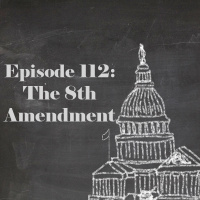

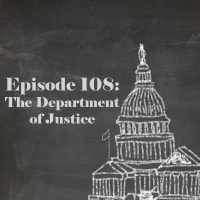
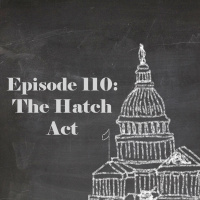
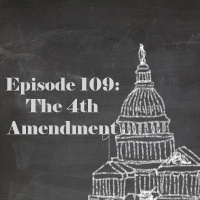
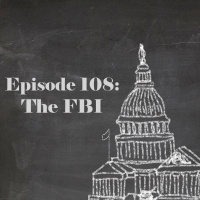
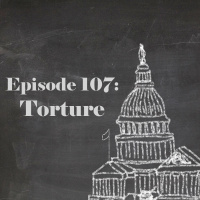
![Episode 106: Department of State Department of Defense [Rebroadcast]](http://media3.ubook.com/catalog/book-cover-image/287506/200x200/79A2E3F9-0A15-A836-2D06-27D632D42B1E.jpg)
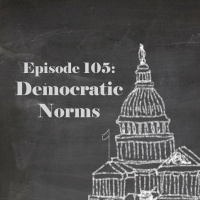
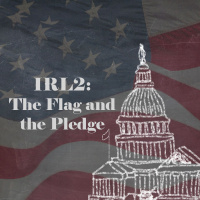
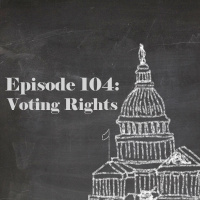
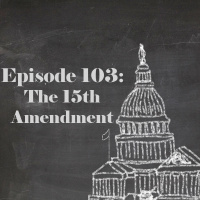
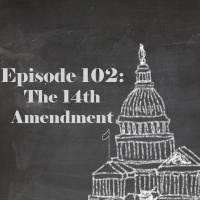

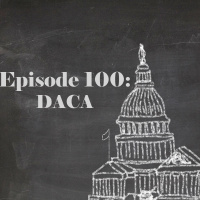
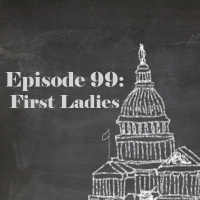
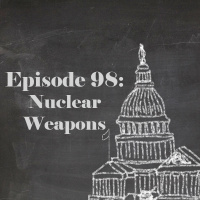
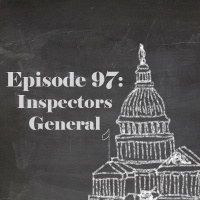










 Jamaica
Jamaica





